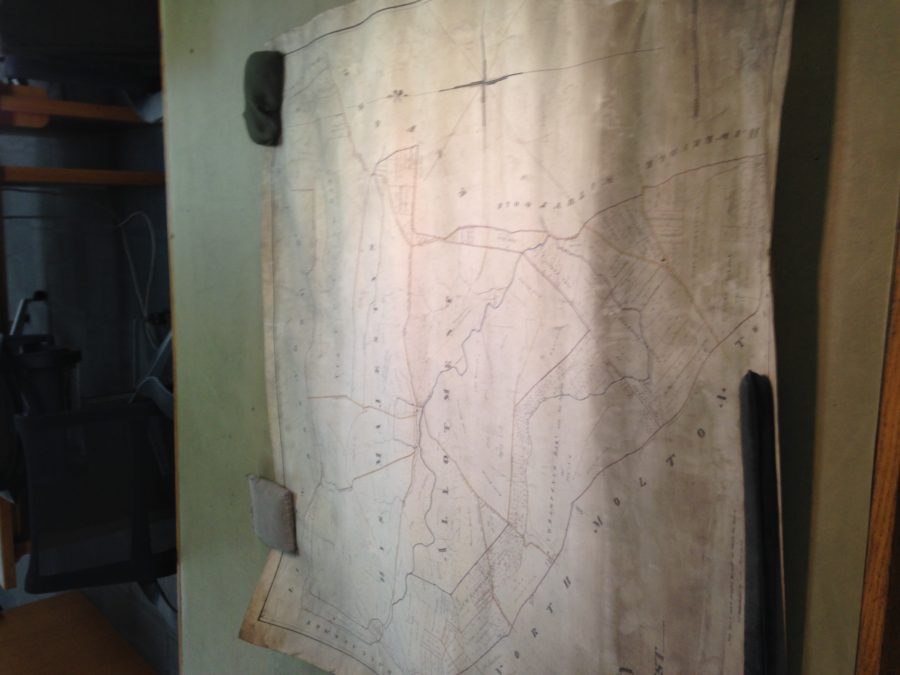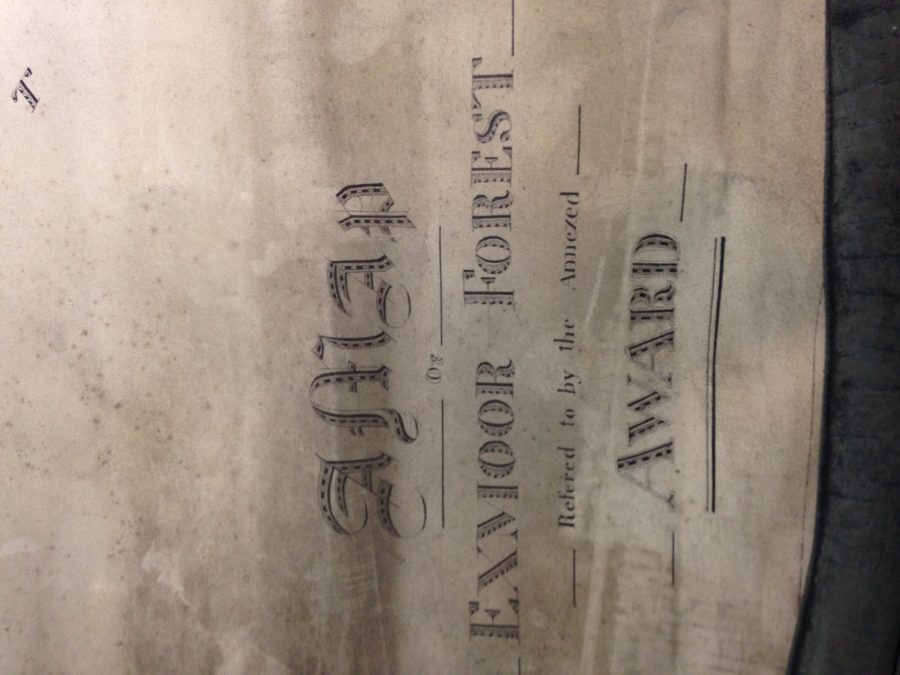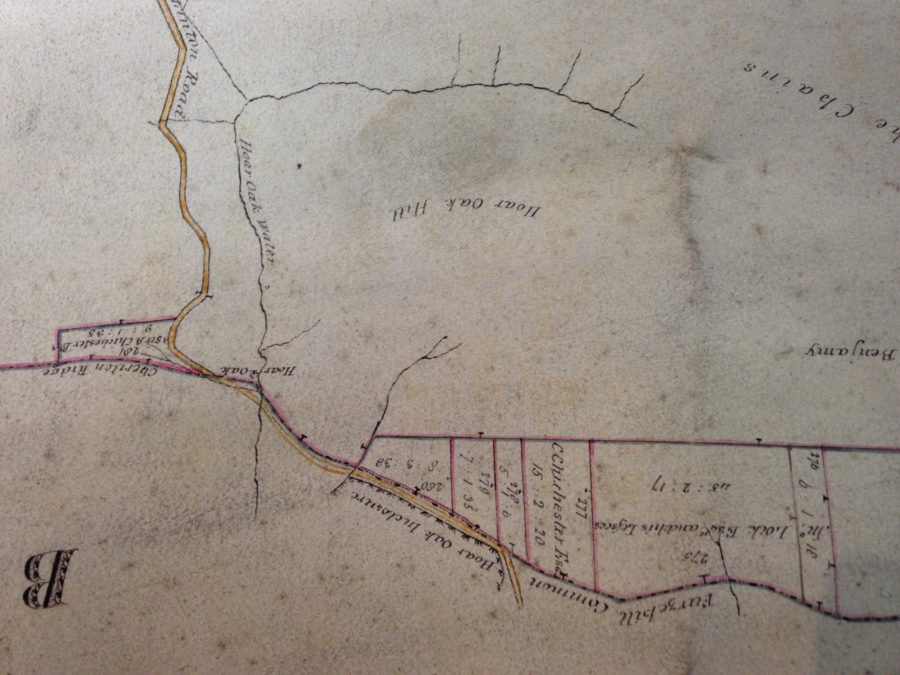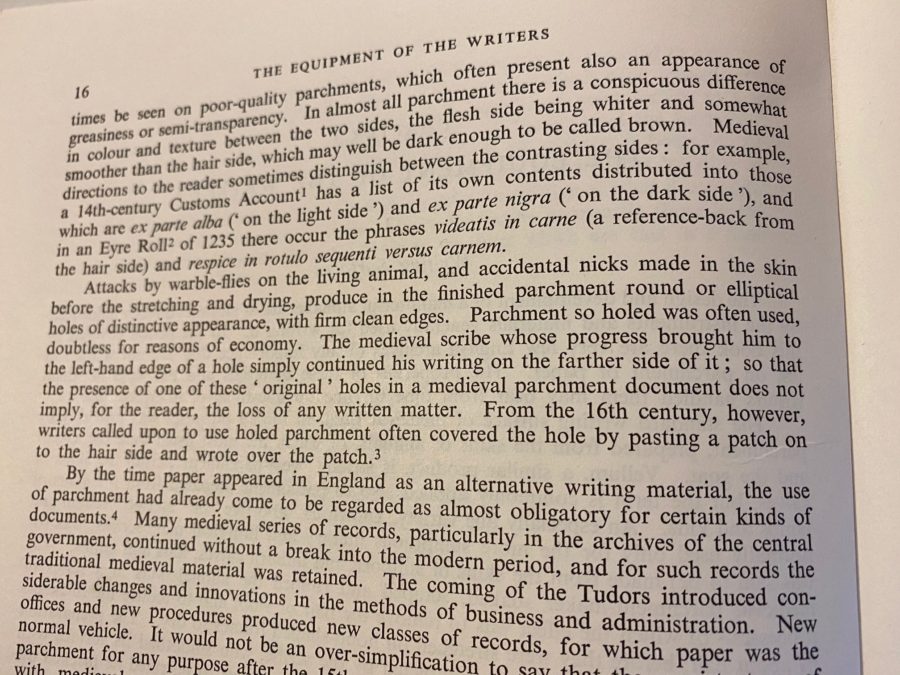Its intriguing to read the parchment roll of documents and map in the National Archives which formally identifies who owns what in and around the high moors of Exmoor. It was drawn up when the Crown decided to sell the Royal Forest of Exmoor to John Knight. It documents how Hoar Oak came into the hands of the Vellacott family – for 3 generations – before it was sold on.
These rather poor images taken at Kew give the reader an idea of these beautiful documents.



Recently, in reading about parchment documents, it became apparent that the quality of the parchment relied very much on the quality of the sheep. It is intriguing to know if any Exmoor sheep skins ever made it into a document that is archived and kept safe for everyone to look at. If they did there would be some interest in whether the sheep had been attacked by warble fly. The excerpt below from L Hector’s history of The Handwriting of English Documents explains the damage warble fly could do to sheep skins and in turn vellum writing sheets and how the clever scribes got around it. Just end your writing one side of the hole and start again on the other!

Clearly another trip to The National Archives at Kew is in order to get some better copies of these precious documents related to the history of Hoar Oak Cottage. Either that or find a few hundred ££££ to pay to have them digitised!!
